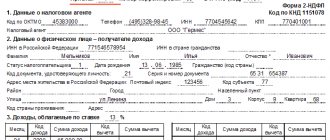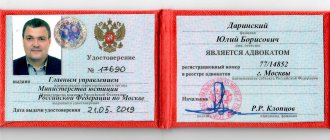The inclusion of enterprise expenses in the calculation of taxable amounts should be carried out on the basis of economic feasibility. At the same time, not a single legislative act contains a clear concept of justification for expenses. The criterion is evaluative in nature, which gives rise to a number of questions and controversial situations during tax audits. The article will tell you how to avoid economically unjustified expenses and claims from fiscal authorities.
Question: Is the counterparty’s absence of expenses characteristic of its type of activity (including general business expenses) a sign that the taxpayer has received an unjustified tax benefit under VAT (Article 54.1, clauses 1, 2 of Article 171 of the Tax Code of the Russian Federation)? View answer
What expenses are unreasonable?
According to Art. 252 of the Tax Code of the Russian Federation, the following expenses can be included in tax calculations:
- economically justified;
- documented;
- expressed in monetary terms.
The norms of this article are related to the norms of Art. 346.16 of the Tax Code of the Russian Federation, therefore, the criteria apply to both calculations for income tax and simplified tax.
Question: Is it possible to deduct VAT if income tax expenses are economically unjustified (clauses 1, 2, Article 171 of the Tax Code of the Russian Federation)? View answer
In practice, it follows from the above that the Federal Tax Service has the right not to recognize certain expenses as economically justified, despite the absence of strict prohibitions in the legislation on the inclusion of certain types of expenses in calculations:
- Costs, according to the law, that are not related to the economic activity carried out by the taxpayer.
- Costs of paying for the services of consultants, auditors, lawyers, advertising agencies without detailing the work performed and the use of this work in business activities.
- Material costs not provided for by production technology or used in excess of technological standards.
- Inventory and materials (works, services) purchased at prices above average market prices for similar product items.
- Inventory materials used in the production of products that are subsequently sold at prices below the cost of inventory materials. The same applies to works and services.
- Costs that are not associated with the organization's receipt of income or with the intention of receiving it.
- Expenses incurred outside the scope of activities aimed at generating income, not having the purpose of generating income (reducing losses), and inflated compared to standard indicators are not considered economically justified.
How are economically unjustified expenses made for the purpose of tax evasion identified?
Important! The taxpayer is obliged to structure his document flow in such a way that it is clear from concluded contracts, primary documents, accounting registers, supporting and reference documents which goods, works and services were subsequently included in the tax calculation and for what purpose certain costs were incurred. When checking, the Federal Tax Service will, first of all, pay attention to their connection with business activities.
What income tax expenses are economically justified?
One of the conditions for recognizing expenses when calculating income tax is their economic justification (clause 1 of Article 252 of the Tax Code of the Russian Federation). Expenses that do not meet this criterion cannot be taken into account when calculating income tax.
Situation: how to apply the term “economically justified expenses” when calculating income tax?
The organization independently assesses the degree of economic justification of expenses. None of the branches of law contains a definition of this term.
Previously, this concept was explained by paragraph 5 of the Methodological Recommendations for the Application of Chapter 25 of the Tax Code of the Russian Federation, approved by Order of the Ministry of Taxes of Russia of December 20, 2002 No. BG-3-02/729. It stated that “economically justified expenses should be understood as expenses determined by the goals of generating income, satisfying the principle of rationality and determined by business customs.” However, by order of the Federal Tax Service of Russia dated April 21, 2005 No. SAE-3-02/173, these recommendations were canceled.
Thus, at the moment, the concept of “economic justification” is evaluative. Analysis of judicial practice allows us to identify the following criteria for the economic justification of expenses:
- the presence of a direct relationship between expenses and business activity (see, for example, resolutions of the Federal Antimonopoly Service of the Moscow District dated May 30, 2013 No. A40-79395/12-90-422 and dated September 4, 2012 No. A40-9474/12-140-44 );
- the direction of the costs incurred to generate income, which is determined by the result of all economic activities of the organization, and not by the receipt of income in a specific tax period (determinations of the Supreme Arbitration Court of the Russian Federation dated January 19, 2009 No. 17071/08, the Constitutional Court of the Russian Federation dated June 4, 2007 No. 320- O-P, resolutions of the Federal Antimonopoly Service of the Moscow District of September 11, 2013 No. A40-115264/12-90-585, of the East Siberian District of February 25, 2013 No. A78-5170/201, of the Central District of September 24, 2012. No. A14-10351/2011);
- connection of expenses with the obligations of the organization, terms of the contract or provisions of the law (see, for example, resolutions of the Federal Antimonopoly Service of the Central District dated April 9, 2013 No. A35-7128/2012, North Caucasus District dated July 25, 2012 No. A53-11418/2011 );
- compliance of prices with market levels (see, for example, resolutions of the Federal Antimonopoly Service of the East Siberian District dated November 19, 2013 No. A33-16624/2012, Volga-Vyatka District dated March 18, 2011 No. A82-8294/2008).
The Federal Tax Service of Russia has proposed its own criteria for assessing the economic justification of expenses when calculating income tax. They are set out in letter No. MM-6-02/356 of the Federal Tax Service of Russia dated April 27, 2007 for internal use, the provisions of which tax inspectorates will use in their work.
First, any eligible expenses can be recognized when calculating income taxes. And not only those that are directly named in Chapter 25 of the Tax Code of the Russian Federation. This is due to the fact that the list of expenses taken into account when calculating income tax is open (subclause 49, clause 1, article 264, subclause 20, clause 1, article 265 of the Tax Code of the Russian Federation).
Secondly, expenses are considered justified if they are related to activities aimed at generating income (letters of the Ministry of Finance of Russia dated September 5, 2012 No. 03-03-06/4/96, dated April 21, 2010 No. 03-03- 06/1/279). This focus does not mean that the organization must necessarily make a profit from the expenses. There may also be a loss. In this case, unprofitability should be assessed not for a separate operation, but as a whole for a specific type of activity of the organization. For example, one-time sales of goods at prices below purchase prices do not indicate a lack of economic justification for costs. If an organization trades at a loss on a systematic basis, and therefore this type of activity is unprofitable, then the costs of purchasing goods may be considered economically unjustified.
The validity of expenses that are not related to a specific type of activity should be assessed based on the economic effect of their implementation. For example, when determining the validity of expenses for managing an organization, the tax office will analyze whether the economic indicators of the organization have changed. If, after the introduction of external management, these indicators have worsened, then this will be the basis for checking the purpose of these expenses.
Thirdly, expenses are unreasonable if they were made for the sole purpose of saving on income tax. That is, when calculating income tax, expenses that were not aimed at generating income, but at obtaining an unjustified tax benefit in the form of savings on income tax, should not be taken into account. The criteria for recognizing a tax benefit as unjustified are defined in Resolution of the Plenum of the Supreme Arbitration Court of the Russian Federation dated October 12, 2006 No. 53.
Advice : in order to take into account expenses when taxing profits, the procedure for reflecting them in the legislation is not prescribed, the organization must clearly demonstrate their economic justification. Take care of this in advance. Secure the economic feasibility of certain expenses in the internal documents of the organization (orders, instructions, job descriptions of employees, etc.).
For example, purchase easy-to-remember telephone numbers for your organization by order of your manager.
Situation: who must prove the economic justification of expenses when calculating income tax?
The tax office must prove that the expenses are economically unjustified. This follows from Part 5 of Article 200 of the Arbitration Procedure Code of the Russian Federation. This point of view is confirmed by letters of the Ministry of Finance of Russia dated April 10, 2013 No. 03-03-06/2/11897, dated October 9, 2012 No. 03-03-06/1/535, rulings of the Constitutional Court of the Russian Federation dated January 25, 2012 No. 134-O-O, dated June 4, 2007 No. 320-O-P, dated June 4, 2007 No. 366-O-P, resolutions of the Presidium of the Supreme Arbitration Court of the Russian Federation dated July 10, 2007 No. 2236/07, Plenum Supreme Arbitration Court of the Russian Federation dated October 12, 2006 No. 53, as well as district arbitration practice (see, for example, decisions of the FAS of the Far Eastern District dated July 17, 2013 No. F03-2803/2013, Volga-Vyatka District dated August 7, 2012 No. A29-5041/2011, East Siberian District dated June 26, 2013 No. A19-18625/2012).
Situation: are indirect costs associated with the initial stage of the activities of a newly created organization considered economically justified? Preparatory expenses were incurred during periods when the organization did not yet have income.
Yes, they admit it.
When calculating income tax, an organization has the right to take into account documented indirect expenses that are associated with activities aimed at generating income, but incurred during periods when the organization did not yet have income.
Chapter 25 of the Tax Code of the Russian Federation is not based on the principle of matching income and expenses. Consequently, when calculating income tax, an organization has the right to take into account expenses incurred both during periods of receiving income and during periods in which there was no income. The main condition is that the organization’s activities as a whole are aimed at generating income. Even if the income will be received in the future. Therefore, if an organization incurs expenses, expecting to receive revenue with their help in the future, then such expenses can be considered economically justified and taken into account when calculating income tax. A similar conclusion is contained in letters of the Ministry of Finance of Russia dated April 21, 2010 No. 03-03-06/1/279, dated February 11, 2010 No. 03-03-06/1/66, Federal Tax Service of Russia dated April 27, 2007 No. MM-6-02/356. The same position is taken by arbitration courts (see, for example, decisions of the FAS Moscow District dated March 31, 2010 No. KA-A40/2740-10, Volga District dated August 27, 2009 No. A57-3361/2009, Northwestern District dated May 2, 2006 No. A56-18791/2005, Volga-Vyatka District dated June 9, 2006 No. A38-4713-12/257-2005(12/7-2006), Ural District dated August 9, 2005 No. F09-3333/05-S1).
The organization determines the list of direct and indirect expenses independently (clause 1 of Article 318 of the Tax Code of the Russian Federation). Therefore, part of the costs associated with the initial stage of activity of a newly created organization (for example, expenses for remuneration of management personnel, rent and maintenance of an office, communication services, etc.) can be taken into account when calculating income tax as part of indirect expenses in the reporting period in which these costs were incurred (clause 2 of Article 318 of the Tax Code of the Russian Federation). Similar clarifications are contained in the letter of the Federal Tax Service of Russia dated April 21, 2011 No. KE-4-3/6494.
If, at the end of the tax period, the expenses incurred resulted in a loss, its amount can be transferred to the future (clause 1 of Article 283 of the Tax Code of the Russian Federation). The provisions of paragraph 1 of Article 283 of the Tax Code of the Russian Federation also apply to newly created organizations. Similar clarifications are contained in letters of the Ministry of Finance of Russia dated August 26, 2013 No. 03-03-06/1/34810, dated April 21, 2010 No. 03-03-06/1/279.
Situation: is it possible to take into account the costs of creating a separate division (branch, representative office) when calculating income tax?
Yes, you can.
To do this, the costs associated with the creation of separate divisions (branches, representative offices) must be:
- economically justified;
- documented.
This is required by paragraph 1 of Article 252 of the Tax Code of the Russian Federation.
Recognize the costs of creating a separate division according to the rules established by Chapter 25 of the Tax Code of the Russian Federation. So, for the premises and equipment purchased for the branch, calculate depreciation. And if the premises are rented, then rental payments can be included in expenses as the lessor issues certificates of service provision (other documents) (subclause 3, clause 7, article 272 of the Tax Code of the Russian Federation). If an organization uses the cash method, rental services must not only be provided, but also paid for (clause 3 of Article 273 of the Tax Code of the Russian Federation).
At the same time, the costs associated with opening a separate division can be taken into account when calculating income tax, regardless of when it begins to function. For example, the premises for the branch have been rented since July, and it will start working only in September. In this case, rent for July and August can be written off as expenses without waiting until September.
Similar clarifications are contained in letters of the Ministry of Finance of Russia dated February 15, 2007 No. 03-03-06/2/26, dated April 24, 2006 No. 03-03-04/2/118, Federal Tax Service of Russia for Moscow dated January 11 2012 No. 16-15/000705.
Situation: is it possible to take into account when calculating income tax expenses that did not lead to a positive result (receiving income, concluding an agreement, winning a competition (tender) to conclude a profitable contract)?
Yes, you can.
One of the conditions for recognizing expenses when calculating income tax is their focus on generating income (Clause 1, Article 252 of the Tax Code of the Russian Federation). It is the focus, and not the condition of achieving a specific positive result. Thus, even if any expenses of the organization did not lead to the planned outcome (receipt of income, conclusion of a contract), they can still be taken into account. The main thing is that all other conditions for their recognition are met:
- the costs are economically justified;
- costs are documented.
This is required by paragraph 1 of Article 252 of the Tax Code of the Russian Federation.
For example, if an organization incurred entertainment expenses, but as a result of negotiations an agreement was not signed, the amounts spent can be taken into account when calculating income tax (within the norms). This follows from the provisions of subparagraph 22 of paragraph 1 of Article 264 of the Tax Code of the Russian Federation and is confirmed by the letter of the Ministry of Finance of Russia dated April 10, 2013 No. 03-03-06/2/11897, as well as arbitration practice (see, for example, the decisions of the Federal Antimonopoly Service of the Ural District dated December 23, 2008 No. F09-8529/08-S2, dated June 17, 2004 No. F09-2441/04AK, Northwestern District dated November 21, 2005 No. A44-1354/2005-15, Volga District dated 22 –March 29, 2005 No. A12-18384/04-C36).
Regarding the costs associated with participation in tenders or competitions, the position of the Russian Ministry of Finance is ambiguous. In some letters, the financial department opposes the reduction of taxable profit due to expenses for participation in competitions (tenders) that did not produce a positive result (letters of the Ministry of Finance of Russia dated July 24, 2006 No. 03-03-04/2/179, dated January 21, 2004 No. 04-02-05/3/1). We are talking about competitions that are not related to the production activities of the organization (for example, a competition for an international award) and that do not bring any economic return. In both cases, the Russian Ministry of Finance believes that the costs of participating in such events are not justified.
However, if certain conditions are met, the Russian Ministry of Finance agrees that expenses for participation in tenders can be written off as a reduction in taxable profit (letters dated January 16, 2008 No. 03-03-06/1/7, dated October 31, 2005 No. 03 -03-02/121, dated November 7, 2005 No. 03-11-04/2/109). To do this, the costs incurred must:
- be a mandatory condition for participation in a tender, as a result of which the organization can receive a contract;
- will not be reimbursed to the organization at the end of the competition.
It should be noted that the Tax Code of the Russian Federation directly provides for the inclusion in the calculation of income tax of certain expenses that did not produce a positive result, for example, certain types of R&D expenses (clause 2 of Article 262 of the Tax Code of the Russian Federation, letter of the Ministry of Finance of Russia dated December 24, 2009 No. 03 -03-05/251).
Situation: is it possible to take into account when calculating income tax the costs of paying for the services of recruitment agencies in the selection of personnel in the absence of a positive result?
No you can not.
Recruitment costs, including payments for the services of recruitment agencies, can be taken into account as part of other expenses only under one condition - the organization has actually recruited employees (subclause 8, clause 1, article 264 of the Tax Code of the Russian Federation). Otherwise, such expenses cannot be considered as economically justified. Consequently, it is impossible to reduce taxable profit on them (clause 1 of Article 252 of the Tax Code of the Russian Federation). This position is adhered to by the regulatory agencies (letters from the Ministry of Finance of Russia dated September 4, 2008 No. 03-03-06/1/504, dated June 1, 2006 No. 03-03-04/1/497 and the Federal Tax Service of Russia for Moscow dated March 22, 2005 No. 20-12/19398).
Advice : there are arguments that allow organizations to take into account the costs of recruiting personnel (including payment for the services of recruitment agencies) when calculating income tax in the absence of a positive result. They are as follows.
Tax legislation does not contain direct restrictions on the recognition of expenses that do not produce a positive result. In addition, expenses are recognized as economically justified if they are related to activities aimed at generating income (paragraph 4, paragraph 1, article 252 of the Tax Code of the Russian Federation). The Tax Code of the Russian Federation does not speak about efficiency (the positive result of expenses) (determination of the Constitutional Court of the Russian Federation of June 4, 2007 No. 320-O-P). This is confirmed by the tax service. In a letter dated April 27, 2007 No. MM-6-02/356, the Federal Tax Service of Russia proposed its criteria for assessing the economic feasibility of expenses when calculating income tax. The tax inspectorates developed this letter for internal use.
Consequently, when searching for personnel, the organization pursues the goal of benefiting from the work of new employees. This means that initially such expenses are aimed at generating income.
The validity of this point of view is confirmed by judicial practice. In the resolutions of the FAS Moscow District dated November 9, 2007 No. KA-A40/10001-07 and the Volga District dated May 22, 2007 No. A55-29883/05-53, the judges indicated that recruitment costs are classified as other expenses associated with production and sales (subclause 8, clause 1, article 264 of the Tax Code of the Russian Federation). At the same time, the Tax Code of the Russian Federation does not require as an additional condition for recognizing the costs of hiring candidates proposed by a recruitment agency.
The justification for the costs of paying for recruitment services is determined not by the final result of such services, but by the fact of their provision, that is, the actual activity of the contractor aimed at searching, selecting and providing candidates to fill vacancies. If the organization did not consider it possible to employ the proposed candidate or if after hiring the employee was fired, then this is not a basis for recognizing such expenses as economically unjustified. Such conclusions are contained in the ruling of the Supreme Arbitration Court of the Russian Federation dated June 20, 2008 No. 7520/08, resolutions of the Federal Antimonopoly Service of the Ural District dated February 19, 2008 No. F09-477/08-S2, and the Moscow District dated March 13, 2009 No. KA-A40/ 1354-09.
And in resolutions dated January 17, 2006 No. A74-2403/05-F02-6860/05-S1 and dated January 11, 2006 No. A10-4653/05-F02-6684/05-S1 the FAS of the East Siberian District indicated that the assessment of the economic efficiency of an organization’s expenses is not provided for by tax legislation as a criterion for forming the tax base. The disputed expenses correspond to the activities of the organization, which already indicates their economic justification.
You can reduce the risks during verification. For example, in an agreement with a recruitment agency, indicate that the organization will pay for the selection of personnel only after the candidate is enrolled on the staff. Or indicate in the contract that the agency, in addition to recruitment services, provides information (provides information about available candidates) and consulting (for example, preliminary testing of applicants) services. After the services are provided, the acceptance certificate and invoice will reflect that information (consulting) services were provided. Take into account the costs for them when calculating profit tax in full (subclauses 14, 15, clause 1, article 264 of the Tax Code of the Russian Federation).
Situation: is it possible to take into account when calculating income tax the costs associated with payment for services for the provision of personnel under an outsourcing agreement? The organization has divisions with similar functions.
Yes, it is possible if the involvement of additional personnel is due to objective reasons.
When calculating income tax, an organization has the right to take into account any economically justified expenses that are documented and related to activities aimed at generating income. This follows from the provisions of paragraph 1 of Article 252 of the Tax Code of the Russian Federation.
The costs of paying for services under outsourcing agreements can be considered economically justified if the involvement of additional personnel (including to perform functions assigned to the existing divisions of the organization) is due to objective reasons. For example, if, due to a shortage of full-time employees, additional personnel are hired by an organization with a continuous production cycle. This conclusion can be drawn from letters of the Ministry of Finance of Russia dated October 16, 2015 No. 03-03-06/59283, dated August 2, 2011 No. 03-03-06/1/444.
In other cases, the costs of paying for services under outsourcing agreements are recognized as economically justified only if the functions performed by the involved personnel do not duplicate the duties of the organization’s regular departments. This is stated in letters of the Ministry of Finance of Russia dated April 5, 2007 No. 03-03-06/1/222, dated December 6, 2006 No. 03-03-04/2/257, dated May 31, 2004 No. 04- 02-05/3/42 and the Federal Tax Service of Russia dated October 20, 2006 No. 02-1-08/222. This position is also shared by some arbitration courts (see, for example, the rulings of the Supreme Arbitration Court of the Russian Federation dated October 4, 2010 No. VAS-13023/10, dated August 21, 2007 No. 9765/07, decisions of the FAS North Caucasus District dated May 27, 2010 No. A53-16012/2009, Volga District dated October 4, 2012 No. A65-21503/2011, dated April 12, 2011 No. A55-14064/2009, Northwestern District dated May 21, 2007 No. A42- 5065/2006 and dated April 9, 2007 No. A05-5024/2006-12, East Siberian District dated December 27, 2006 No. A19-6451/06-33-F02-6879/06-S1 and dated May 31, 2006 No. A19-39593/05-51-F02-2541/06-S1, West Siberian District dated January 25, 2006 No. F04-3285/2005(19082-A27-15)).
Advice : there are reasons to take into account the costs of paying for services under an outsourcing agreement even if the organization has departments with similar functions. They are as follows.
The legislation does not prohibit organizations from engaging personnel under an outsourcing agreement if they have full-time personnel (structural units) with similar functions.
The mere presence of full-time employees whose duties coincide with the duties for which additional personnel are hired is not a basis for recognizing such costs as economically unjustified. The Tax Code of the Russian Federation does not contain norms that would allow tax inspectorates to assess the economic feasibility of an organization's expenses. Assessing the feasibility of paying for certain services is within the exclusive competence of the organization. This position is set out in the ruling of the Constitutional Court of the Russian Federation dated June 4, 2007 No. 320-O-P.
If an organization documents the costs of hiring personnel under an outsourcing agreement, then it has the right to take them into account when calculating income tax. This conclusion is confirmed by arbitration practice (see, for example, Resolution of the Presidium of the Supreme Arbitration Court of the Russian Federation dated March 18, 2008 No. 14616/07, determinations of the Supreme Arbitration Court of the Russian Federation dated May 12, 2008 No. 5971/08, January 30, 2008 No. 199/08 , resolution of the Federal Antimonopoly Service of the West Siberian District dated January 21, 2008 No. F04-231/2008(681-A27-40), dated September 17, 2007 No. F04-6333/2007(38133-A27-15), dated March 12 2007 No. F04-1338/2007(32306-A46-26) and dated June 13, 2007 No. F04-3766/2007(35114-A27-40), Moscow District dated November 9, 2012 No. A40-14280/ 12-107-69, dated February 9, 2012 No. A40-131877/10-114-778, dated December 13, 2010 No. KA-A40/15170-10, dated July 15, 2009 No. KA-A40/6230 -09, dated May 5, 2009 No. KA-A40/3335-09, Volga region dated March 16, 2011 No. A65-10683/2010, dated April 27, 2007 No. A55-11750/06-3 and dated 16 March 2007 No. A57-10728/06-25, Northwestern District dated December 7, 2007 No. A66-2645/2007, dated September 7, 2007 No. A05-10534/2006-26, dated July 19, 2007 No. A56-35010/2006, dated February 14, 2007, No. A66-16934/2005, Ural District, dated December 23, 2011, No. F09-8273/11, dated December 13, 2006, No. F09-11058/06-S7 , dated April 12, 2006, No. F09-2615/06-S7 and the Central District, dated June 23, 2006, No. A64-10456/05-13).
Situation: is it possible to take into account when calculating income tax the amounts that an organization transfers to charitable purposes (for example, to provide assistance to victims of man-made disasters, military operations, natural disasters, terrorist acts)?
No you can not.
All expenses of the organization that are included in the calculation of taxable profit must simultaneously be:
- economically justified;
- documented.
If at least one of these conditions is not met, expenses are not recognized for tax purposes.
This procedure is provided for in paragraph 1 of Article 252 of the Tax Code of the Russian Federation.
It is obvious that expenses for charitable purposes are in no way related to activities aimed at generating income. Therefore, it is unlawful to include them in the calculation of the tax base for income tax. A similar point of view is reflected in the letter of the Ministry of Finance of Russia dated October 11, 2007 No. 03-03-07/18. In addition, any charitable assistance involves the gratuitous transfer of funds or material assets. And expenses in the form of the value of property transferred free of charge and expenses associated with such a transfer cannot be taken into account when calculating income tax (clause 16 of Article 270 of the Tax Code of the Russian Federation).
In accounting, expenses associated with charitable activities are recognized as other and reflected in account 91. This is stated in paragraph 11 of PBU 10/99. Thus, when providing charitable assistance, a permanent difference will arise, with which the permanent tax liability must be calculated (clauses 4 and 7 of PBU 18/02).
An example of how expenses for providing charitable assistance are reflected in accounting and taxation
By decision of the founders, Torgovaya LLC transfers 100,000 rubles. to a bank account opened to provide assistance to flood victims and donates a truck to the relief fund. The initial cost of the car is 1,180,000 rubles. (including VAT - 180,000 rubles), residual - 833,333 rubles, amount of accrued depreciation - 166,667 rubles. When transferring property for charitable purposes, the organization applies the VAT benefit provided for in subparagraph 12 of paragraph 3 of Article 149 of the Tax Code of the Russian Federation. Therefore, the amount of VAT accepted for deduction when purchasing a car is subject to restoration. The amount of VAT to be restored is RUB 150,000.
The following entries were made in the organization's accounting:
Debit 91-2 Credit 76 – 100,000 rub. – reflects the amount of charitable assistance to be transferred in favor of the victims;
Debit 76 Credit 51 – 100,000 rub. – the amount of charitable assistance is transferred;
Debit 01 subaccount “Disposal of fixed assets” Credit 01 – 1,000,000 rub. – the initial cost of the retiring vehicle is reflected;
Debit 02 Credit 01 subaccount “Disposal of fixed assets” – 166,667 rubles. – depreciation accrued over the period of operation of the vehicle is reflected;
Debit 91-2 Credit 01 subaccount “Disposal of fixed assets” – 833,333 rubles. – reflects the residual value of the gratuitously transferred fixed asset;
Debit 19 Credit 68 subaccount “VAT calculations” – 150,000 rubles. – VAT previously accepted for deduction has been restored;
Debit 91-2 Credit 19 – 150,000 rub. – the restored amount of VAT is written off.
Since the taxable profit of the organization is not reduced by expenses for charitable purposes, the Hermes accountant recorded a permanent tax liability:
Debit 99 subaccount “Continuous tax liabilities” Credit 68 subaccount “Calculations for income tax” - 216,667 rubles. ((RUB 100,000 + RUB 833,333 + RUB 150,000) × 20%) – reflects a permanent tax liability on the amount of charitable donation that is not taken into account when taxing profits.
Continued >>
How to identify and minimize unreasonable expenses
Identifying unreasonable expenses of an organization is a priority goal of its management. Timely measures will help not only to avoid problems during tax audits, but also to discover internal reserves that allow you to generate more income and save resources. As a rule, they start with an internal audit, during which a continuous or selective method is used to check whether the costs correspond to:
- production technology, the nature of economic activity in essence;
- standards established by internal documents of the organization or the legislation of the Russian Federation (norms for writing off fuel and lubricants, travel expenses, production costs based on internal calculations of the economic service, etc.);
- criterion of economic feasibility.
Supporting and other documents are checked, reflecting costs, correctness of execution, availability of necessary details (to avoid claims during inspections, etc.).
Before signing an agreement with a counterparty that involves expenses, it is necessary to calculate its economic consequences. Based on the data received, the manager makes a decision whether to consider future costs justified or not. Thus, if the Federal Tax Service refuses to refund a large amount of VAT, then engaging a professional consultant with a fee significantly lower than the disputed amount will be economically justified. At the same time, conducting marketing surveys of potential consumers, if the company does not have problems with selling products, cannot be called justified, since their economic benefits cannot be assessed.
As a rule, it is not possible to completely avoid economically unjustified expenses, even in the part limited by the articles of the Tax Code of the Russian Federation.
Internal limits on such expenses should be established and compliance with them should be monitored:
- travel expenses, travel taking into account the status and categories of employees;
- entertainment expenses, similar to the previous paragraph;
- expenses for gifts for holidays and anniversaries;
- expenses of cultural events.
Tough measures to prevent conflicts
But the leadership’s desire for equality and alternative ways to prevent conflicts often lead to new tough measures that they themselves develop. It is very rare today that a middle manager in a large insurance company or bank can simply reward an excellent employee with a large increase in salary. Today, there are ironclad sets of rules regarding salary grades, based on detailed job descriptions, usually written by employees of the human resources department. Unfortunately, these instructions and wages quickly become outdated. At Manufacturers Hanover, some job descriptions, such as those for systems analysts, have not changed for the past ten years because staff have not bothered to review them. As a result, it has become more difficult to retain qualified staff.
Hiring decisions have similar limitations. A team of 13 psychologists in the HR department does nothing other than create new testing methods to identify an exemplary employee. A manager's positive decision regarding a candidate for many positions in a company is worthless if the candidate's test results are negative. At the very least, such tests could support a judgment against a company if it were sued for bias in hiring.
HR costs, excluding actual benefits paid, have tripled over the past ten years, to $750 per employee per year at nearly 700 U.S. companies, according to a survey conducted by the Government Affairs Administration. That's almost as much as corporations spent on computer hardware over the past year.
Despite all the rumors about the leanness and efficiency of American companies, a survey of most American corporations conducted by Towers, Perrin, Forster & Crosby found that the ratio of HR departments to personnel on average doubled between 1976 and 1986. Many companies have overstaffed staff. At Dow Chemical, there are 53 employees per HR manager.
The costs of ensuring equity are rising, limiting company productivity at a time when industries face intense external competition.
Justification of expenses and tax control
When carrying out tax audits, employees of the Federal Tax Service are often guided by the principle that the taxpayer is required to prove the validity of expenses. In doing so, they refer to Art. 64 of the Arbitration Procedural Code of the Russian Federation, provisions of the Tax Code of the Russian Federation, justifying my opinion as follows:
- Based on the norms of the Tax Code, the taxpayer forms the tax base independently;
- Based on the rules of the APC, the taxpayer is not relieved of the obligation to prove his claims with facts that form the basis of the claims.
However, such a position is at least controversial, and essentially incorrect. In the same APC Art. 200-5 directly contains an indication of the obligation of the Federal Tax Service to provide evidence of the unreasonableness of the organization’s expenses.
Important! If there is a suspicion of artificially inflated prices, tax authorities use Art. 40-3 Tax Code of the Russian Federation. The established standard is no more than 20% deviation from market prices for similar items of goods, works, and services. The rate of entertainment expenses is no more than 4% of labor costs during the year (Article 264-2 of the Tax Code of the Russian Federation).
What are hospitality expenses?
For representative purposes in accordance with the provisions of paragraph 2 of Art. 264 of the Tax Code of the Russian Federation the following types of expenses should be included:
- costs of holding official events with the participation of company representatives;
- expenses for transport and catering services ordered for the purpose of holding relevant events;
- expenses for the services of a translator if his assistance is needed for an official event.
Representation expenses (hereinafter referred to as PR) can be used by a company to reduce the tax base - in an amount not exceeding 4% of labor costs (their list is defined in Article 255 of the Tax Code of the Russian Federation).
In order to use PR to optimize taxes, it is necessary to justify them.
Reflection of unreasonable expenses in accounting
Let's consider an example: an organization participates in a charity program by transferring contributions in the amount of 175,000.00 rubles. From the point of view of tax legislation, such expenses will be unjustified, since they do not lead to income (Article 270-16.34 of the Tax Code of the Russian Federation). An attempt to include them in the calculation of the tax base in order to reduce it may lead to the application of penalties against the organization.
In accounting, charitable contributions are reflected in account 91:
- Dt 91/2 Kt 76 - 175,000.00 rub. — reflects the amount of the charitable contribution.
- Dt 76 Kt - 51.50 - 175000.00 rub. — a charitable contribution is transferred.
- Dt 99/PNO Kt 68/Income tax - RUB 35,000.00. — a permanent tax liability is reflected (175,000.00*20%= 35,000.00).
Important! If an organization has incurred a loss as a result of its activities, this cannot serve as a basis for recognizing expenses as economically unjustified. Article 252 of the Tax Code of the Russian Federation does not justify costs based on the results of the activities of an economic entity. Likewise, costs aimed at reducing losses are justified (see letter of the Ministry of Finance No. 03-03-04/4/69 dated 10/27/05).
The determining factor is the focus on generating income, and not the result of economic activity during the period of expenditure.
Main
- The justification of expenses is determined by the organization.
- The expenses incurred must be primarily aimed at generating profit within the scope of the type of activity declared by the organization.
- Costs that do not meet this requirement, as well as those incurred in excess of the norms established by law, are economically unjustified. They cannot be included in tax calculations and reduce the tax base.
- Control of unreasonable expenses and expenses that may be recognized by the Federal Tax Service as unreasonable is carried out by the management of the organization.
- During a tax audit, the burden of proof of the unreasonableness of the taxpayer's expenses rests with the fiscal authorities.
How to justify entertainment expenses in order to optimize taxes?
The letter of the Ministry of Finance of the Russian Federation dated November 13, 2007 No. 03-03-06/1/807 lists the following main ways to justify the expenses under consideration:
- drawing up an order from the director to carry out an event involving the commission of PR;
- drawing up cost estimates for a particular event;
- drawing up a report on the expenditure of funds during the event.
Also, the Ministry of Finance in this letter recommends additionally confirming the expenses reflected, in particular, in the report with various primary documents.
There is also a newer legal act from the Ministry of Finance - letter dated April 10, 2014 No. 03-03-RZ/16288. In it, the list of documents in support of the PR is significantly reduced to a minimum: the department considered that in this case it is enough for the company to draw up only an expense report and supplement it with primary documents.
Nevertheless, many modern companies prefer, due to well-established business customs, to collect in support of expenses of a representative nature exactly those documents that are given in the earlier order of the Ministry of Finance. This is often due to the company’s desire to protect itself from claims from the tax department, as well as the specifics of the organization’s internal reporting and control.
In addition, many companies, in order to confirm expenses (not counting the forms recommended by the Ministry of Finance), compile such sources as:
- act on the implementation (writing off) of expenses;
- program for the official event.
Let us consider the specifics of drawing up the documents listed above in more detail.







